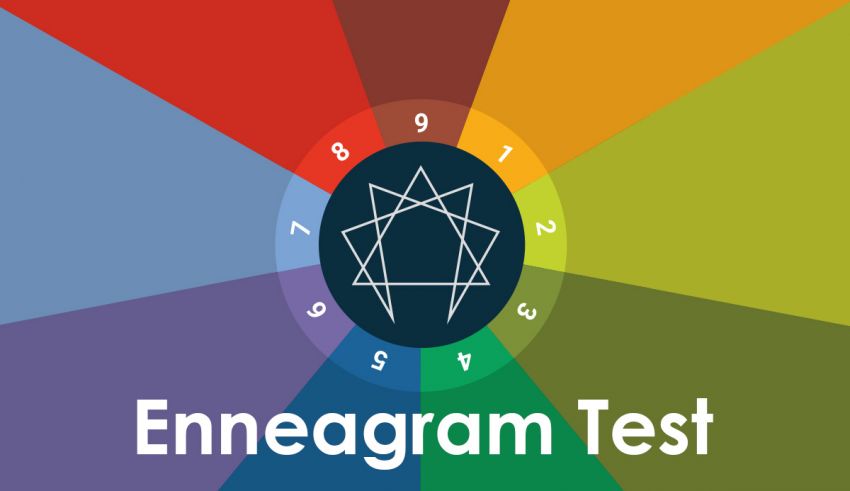The Enneagram is a powerful personality test that helps you understand yourself and others better. It is based on a nine-pointed star diagram that describes nine distinct personality types. Knowing your Enneagram type can give you insight into your motivations, behavior, relationships, and ways of dealing with stress.
It can also help you understand the motivations, behavior, and ways of dealing with stress of others. The Enneagram is a valuable tool for self-discovery, self-awareness, and personal growth.
How to Interpret Your Enneagram Test Results
Interpreting the results of an Enneagram test can be a powerful tool for self-discovery and personal growth. An Enneagram test is a personality assessment that divides people into nine different personality types. Each type is associated with certain traits, behaviors, and motivations.
By understanding the results of your Enneagram test, you can gain insight into your inner self and gain a better understanding of how to improve your life. The first step in interpreting your Enneagram test results is identifying your core type. Your core type is the description of the personality type that most closely matches you.
This type will provide insight into your fundamental traits, motivations, and behaviors. Once you have identified your core type, you should look for the type’s wings. Wings are the two types adjacent to your core type on the Enneagram diagram. Wings provide additional insight into how you may behave in certain situations.
Next, you should look for your security point. A security point is the type that is two numbers away from your core type. This type provides insight into how you react when you feel secure in a situation. Lastly, you should look for your stress point. A stress point is the type that is three numbers away from your core type.
This type provides insight into how you may behave when you are under stress. By understanding your core type, wings, security point, and stress point, you can gain a better understanding of your behavior and motivations. This can be a powerful tool for self-discovery and personal growth.
An Overview of the Enneagram & Its Types
The Enneagram is a powerful personality typology developed by the ancient Greek philosophers as a tool to categorize and understand the human psyche. In modern times, it has been popularized by various authors and is used by many to gain insight into their personal strengths, weaknesses, and motivations.
The Enneagram symbol is composed of nine points connected by lines and is often referred to as the “Enneagram of Personality”. Each of the nine points represents a different type of personality, with each type having its own unique set of characteristics.
The nine types are as follows: Reformer, Helper, Achiever, Individualist, Investigator, Loyalist, Enthusiast, Challenger, and Peacemaker. Each type is associated with certain core beliefs, values, and motivations that are unique to that particular type. Through understanding the
Enneagram, individuals can gain greater insight into their own motivations, strengths, and weaknesses, as well as how they interact with others. The Enneagram is a powerful tool for personal development and can be used to gain greater insight into oneself and how to best interact with others. It can be used to identify areas of growth, develop better communication skills, and work towards becoming a more effective leader.
The Enneagram is not a one-size-fits-all solution, and each individual should take the time to explore and understand their own unique personality type. By doing so, they can gain greater insight into their own motivations and better understand how to relate to and interact with others.
The Benefits of Taking an Enneagram Test
The Enneagram test is a powerful tool for personal development and understanding of oneself. It is a personality test that helps individuals gain insight into their core motivations and behavior, giving them a greater understanding of themselves and their relationships with others. Taking an Enneagram test can be beneficial in many ways, from improving communication in relationships to helping individuals grow and develop in their careers.
First and foremost, the Enneagram test can help individuals identify their core motivations, values, and strengths. By taking the test, individuals can gain a better understanding of why they act in certain ways and why they may be drawn to certain activities or people. Knowing these motivations can help individuals make more informed decisions and better understand the motivations of others.
The Enneagram test can also help individuals develop stronger relationships with others. By understanding their own motivations and behavior, individuals can have better conversations with others and more effectively communicate their needs, wants, and feelings. This can lead to more meaningful and rewarding relationships.
Taking an Enneagram test can also help individuals identify areas of their lives that need improvement. By understanding their strengths and weaknesses, individuals can focus on the areas that need development and set goals for personal growth. Knowing what the
Enneagram test reveals can also help individuals assess their career path, helping them decide which direction to pursue or what changes to make. Finally, the Enneagram test can provide individuals with greater self-awareness and self-acceptance. By understanding their core motivations and strengths, individuals can gain greater insight into their own thoughts and feelings, leading to a greater sense of self-awareness.
In short, taking an Enneagram test can be a powerful tool for personal development, helping individuals identify their core motivations, strengths, and areas of improvement. It can also lead to better relationships and greater self-awareness, allowing individuals to grow and develop in meaningful ways.
Examining the Nine Different Enneagram Types
The Enneagram is an ancient personality typing system that has become increasingly popular in recent years. It is based on nine distinct personality types that are represented by the numbers one through nine. Each of these nine types has its own set of traits, strengths, and weaknesses.
In this article, we will examine the nine different Enneagram types in detail.
Type One: The Reformer is the most principled and idealistic of the Enneagram types. Ones are reliable and responsible, with a strong sense of right and wrong. They may be overly critical of themselves and others, expecting perfection.
Type Two: The Helper is generous and kind, with a strong desire to be of service to others. Twos are sensitive and caring, but may be overly dependent on the approval of others.
Type Three: The Achiever is ambitious, goal-oriented, and driven to succeed. Threes are highly motivated and often excel in their chosen fields. However, they may be overly focused on results and neglecting their own emotional needs.
Type Four: The Individualist is creative, sensitive, and deeply emotional. Fours are in tune with their inner world, and often express their feelings through art or music. They may be overly sensitive and vulnerable to criticism.
Type Five: The Investigator is analytical and focused on understanding the world around them. Fives are naturally curious and independent, but may be overly detached from their emotions.
Type Six: The Loyalist is the most security-minded of the Enneagram types. Sixes are loyal and responsible, but can be overly anxious and suspicious.
Type Seven: The Enthusiast is the most energetic and spontaneous of the Enneagram types. Sevens are naturally optimistic and sociable, but may be overly impulsive and scattered.
Type Eight: The Challenger is a strong-willed, assertive, and self-confident type. Eights are natural leaders and often have a presence that commands attention. However, they can be overly controlling and aggressive.
Type Nine: The Peacemaker is the most relaxed and easy-going of the Enneagram types. Nines are patient and accepting, but they may be overly passive and indecisive.
In conclusion, the Enneagram is an ancient system of personality typing that offers insight into the unique traits, strengths, and weaknesses of each individual type. Understanding your own Enneagram type can help you better understand yourself and your relationships with others.
Exploring the Roots of the Enneagram Test & How it Was Developed
The Enneagram test is a personality assessment in which people are grouped into nine distinct categories. It is based on a type of ancient symbol known as the Enneagram, which was first developed in the fourth century by a group of Christian mystics known as the Desert Fathers. The Enneagram symbol is composed of a circle containing nine points. Each point is associated with a distinct personality type, and each type is identified by a number from one to nine.
The modern Enneagram test was first developed in the early 1900s by a Russian psychologist, Georgi Gurdjieff, who was heavily influenced by the teachings of the Desert Fathers. Gurdjieff believed that the Enneagram symbol was an organizing principle that could be used to understand human behavior and relationships. He developed a system of nine personality types that he believed accurately described the different ways that people think and act.
In the 1940s, Gurdjieff’s work was further developed by Oscar Ichazo and Claudio Naranjo, two Chilean psychologists who modified Gurdjieff’s system and created the modern Enneagram test. Ichazo and Naranjo believed that the Enneagram symbol represented nine universal personality types that were applicable to everyone. They created a questionnaire to help people identify their type, and this questionaire is still in use today.
The Enneagram test has since gained a great deal of popularity, and is now used in many fields, from business to education to self-help. Although the test is not scientifically validated, it has been found to be a useful tool for understanding personality and improving relationships. It is also used as an aid for personal growth and development.
In summary, the Enneagram test is a personality assessment that was first developed in the fourth century by Christian mystics. It was later modified and expanded upon by Russian psychologist Georgi Gurdjieff in the early 1900s, and finally perfected by Chilean psychologists Oscar Ichazo and Claudio Naranjo in the 1940s. Today, the Enneagram test is widely used as a tool for understanding personality and improving relationships.
The Enneagram test is an insightful and powerful tool that can help individuals better understand their personality and behavior. It can also help people identify their strengths and weaknesses in order to make important decisions and take meaningful action. This test can be a great asset when it comes to personal growth and development, as it can provide an in-depth look into the various aspects of a person’s personality.



